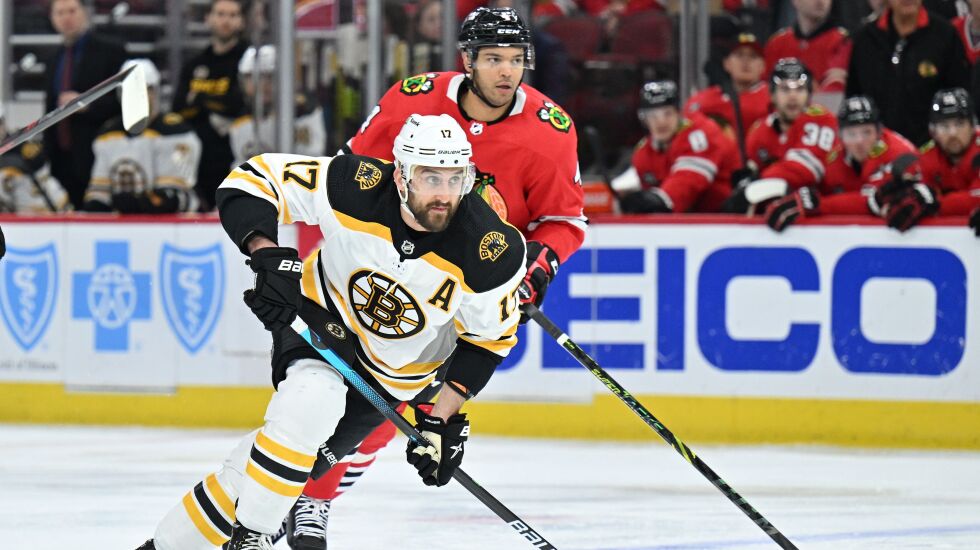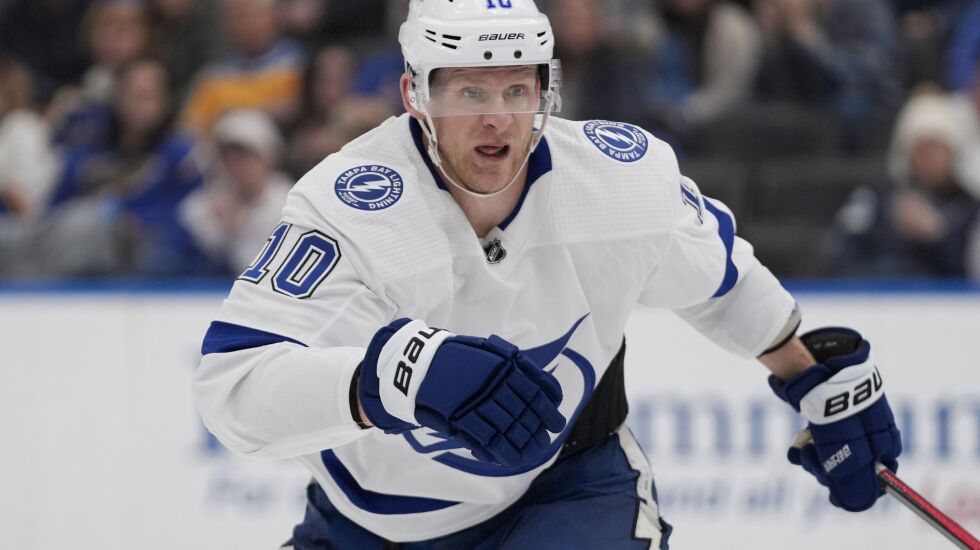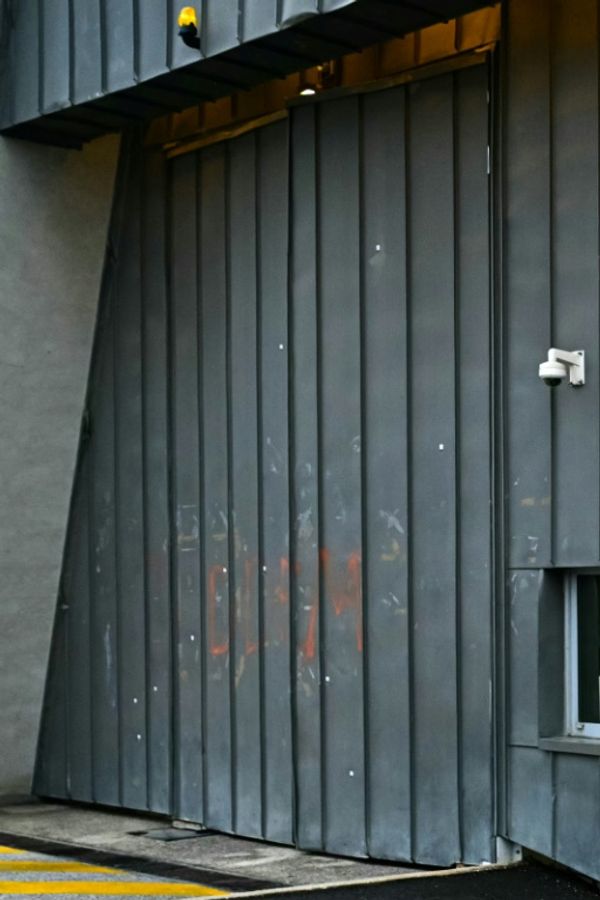
Leadership has been quite a buzzword around the Blackhawks this summer.
The additions of former Blue Jackets captain Nick Foligno and former Ducks ultra-pest Corey Perry were both made by Hawks general manager Kyle Davidson with one objective: to bring in leadership.
But that statement leads to one reasonable question, one that many fans have posed. If the Hawks wanted leadership, why didn’t they simply bring back Jonathan Toews and Patrick Kane, two of the most successful, experienced and beloved leaders in franchise history?
The answer is complicated, but at least in Davidson’s thought process, it largely boiled down to one conclusion: Toews and Kane provided, albeit at no fault of their own, too much leadership.
“No offense to Corey Perry or Nick Foligno, [but] they’re not Jonathan Toews or Patrick Kane,” Davidson said after the draft. “Corey was a very, very good player at his peak, but just having those club legends is a little bit different.
“The opportunity with Nick and Corey, where they’re here on shorter-term deals, [gives other players] runway to be those leaders and work alongside them. Rather than just have Jonathan and Patrick there — because they would be the leaders, unquestioned, no doubt about it, and there would be somewhat of a roadblock there in terms of leadership development.
“In my opinion, having good veterans on short-term [contracts] allows some of those guys who might be here longer to jump into those spaces and therefore use Nick and Corey as resources. [They’ll] help solidify the culture in the locker room in the short term.”
In other words, in his view, Kane and Toews’ larger-than-life presences created something of a leadership vacuum in which no one else (other than Connor Murphy among the defensemen to an extent) could grow into a leader themselves. Instead, everyone else respectfully deferred to Kane and Toews in all situations.
Whether that was absolutely or just somewhat true is difficult to know, but it is absolutely true that every player who joined the Hawks in recent years spoke at length about how surreal it was to play alongside Kane and Toews.
Many rookies entering the NHL nowadays actually grew up worshiping them on TV. Lukas Reichel, for example, has described Kane several times as his “favorite player” since childhood. Considering that reverence, Reichel probably wouldn’t have been willing to argue with or overrule Kane if they ever disagreed about, say, the right pass to make on a power play.
Davidson gave a similar explanation back on April 13 when first announcing he wouldn’t re-sign Toews, too. This plan has been brewing in his head for a while.
“I don’t know if [this decision is about] necessarily putting the past behind us,” he said then. “It’s more clearing the deck, to some extent, to allow the organic growth for young players into leadership roles and offer this new era of Blackhawks players the same opportunity that Toews, Kane, [Duncan] Keith and [Brent] Seabrook were all offered when they came into the league.
“We believe that it...is beneficial for this next group to allow leaders to emerge, to form that relationship with Luke [Richardson and] that relationship with myself, and [to], in the locker room, be a voice, rather than deferring to someone who’s been here for so long.”
It’s worth noting that Kane and Toews’ health statuses are uncertain, too. Neither have yet signed new contracts with any team for next season. That was likely another factor in Davidson’s wariness.
Toews, 35, is still assessing whether he can continue his career at all. That will be determined by how his body handles a full summer of training. Kane, 34, is rehabbing from hip surgery, reportedly waiting to see how things shape out. Now that his “lifetime Hawk” dream is dead, playing for a serious contender seems to be his priority.
When Foligno, 35, and Perry, 38, walk into Fifth Third Arena for training camp, however, they’ll do so as grizzled, well-traveled veterans but certainly not as Chicago legends. Their presences will be helpful but not awe-inspiring, and that’s basically the idea.
“A lot of times with leadership, it’s [about] building relationships,” Foligno said earlier this month. “That’s where I think I can excel and help. [That’s what I] have tried to do in my career. When you have a team that really truly cares for one another, that is excited to come to the rink, that understands the work that needs to go into becoming better but is enjoying themselves when they’re there, those rooms usually start to set a standard and a culture.
“If you can find a way to get everyone to gel and bond and form that brotherhood, it’s amazing what you can accomplish.”

Reichel, Connor Bedard, Alex Vlasic, Wyatt Kaiser, Arvid Soderblom, potentially Kevin Korchinski and any other Hawks prospects graduating into the NHL full-time in 2023-24 will be aided by Foligno and Perry but not overshadowed by them.
Bedard can learn about handling the pressures of being a No. 1 pick from Taylor Hall. The whole group can learn about handling the duties of NHL captaincy from Foligno. The whole group can learn about the road to Stanley Cup Finals from Perry (just as they could have from Kane or Toews, to be fair).
They’ll also receive some institutional knowledge about Hawks- and Chicago-specific things from guys like Murphy, Seth Jones and Tyler Johnson, who have been around long enough at this point.
At the same time, the group will have plenty of space to speak up, develop their own voices, find their own niches and give advice to their own teammates, too. With Foligno and Perry both on one-year contracts (while Hall has two years left on his), they’ll need to do that swiftly, because they’ll be expected to take over the top leadership roles soon.
They’ll have to learn together how to navigate the inevitable ups and downs of the NHL, and there will be plenty of downs to navigate in 2023-24. For instance, after the Hawks’ ugliest losses — instances when, historically, Toews always spoke on behalf of the team — the same tough questions will now fall at someone else’s feet instead.
Jones or Murphy — or Foligno or Perry — might assume that role initially, but at some point, Bedard — or whomever emerges as the strongest leader among the new generation — will have to shoulder the load. The process of preparing the new generation for that might as well start now.







